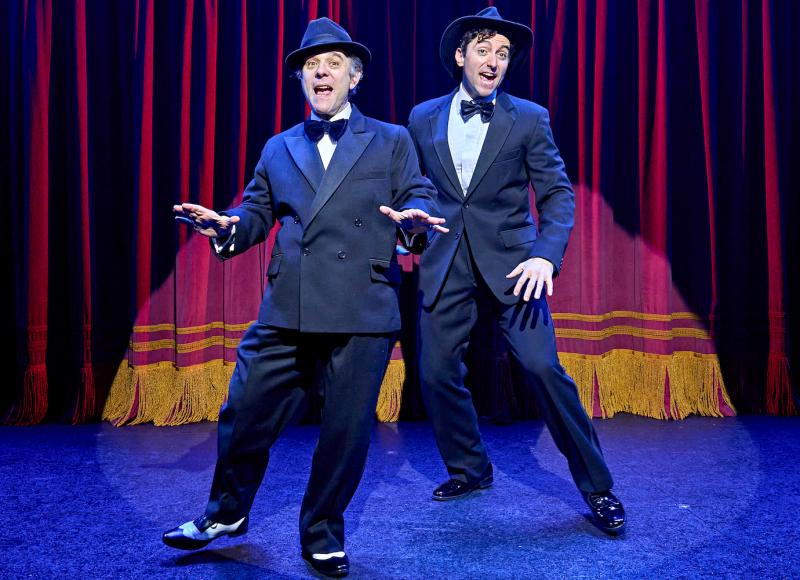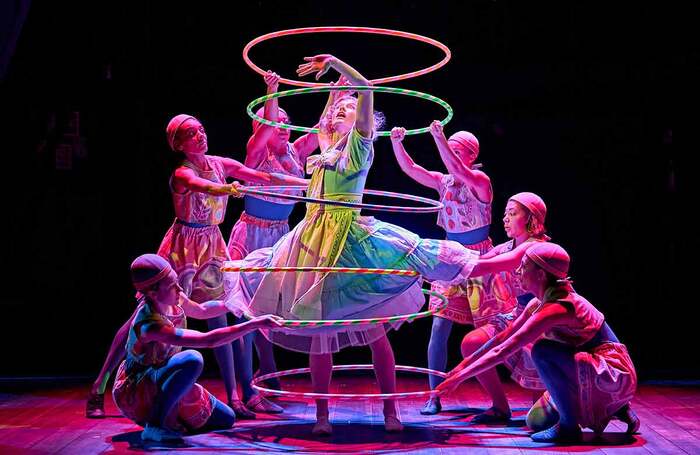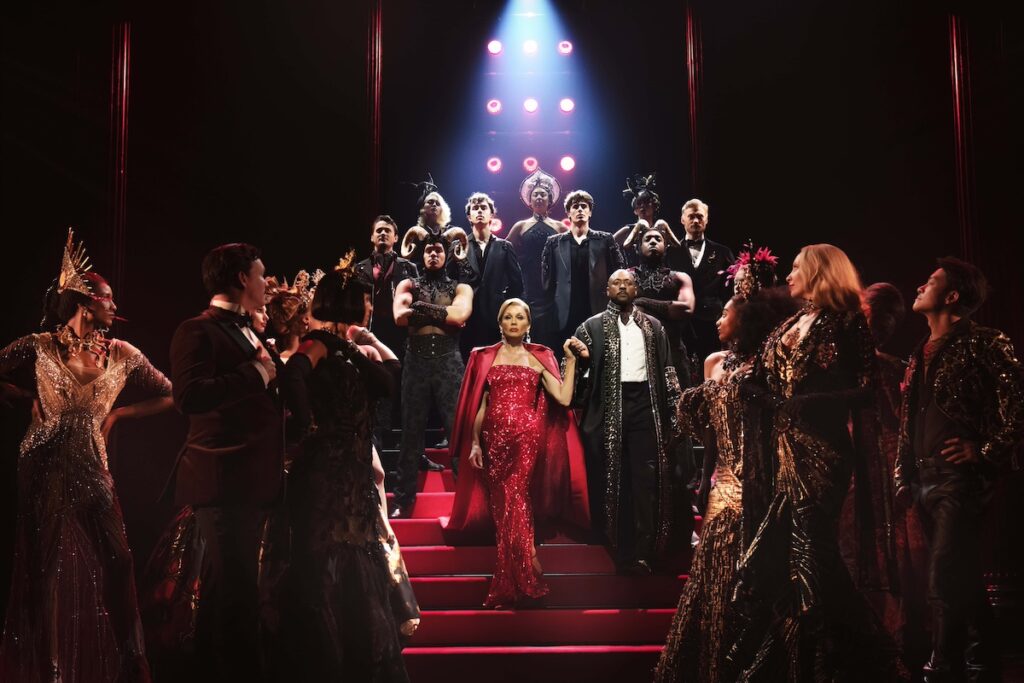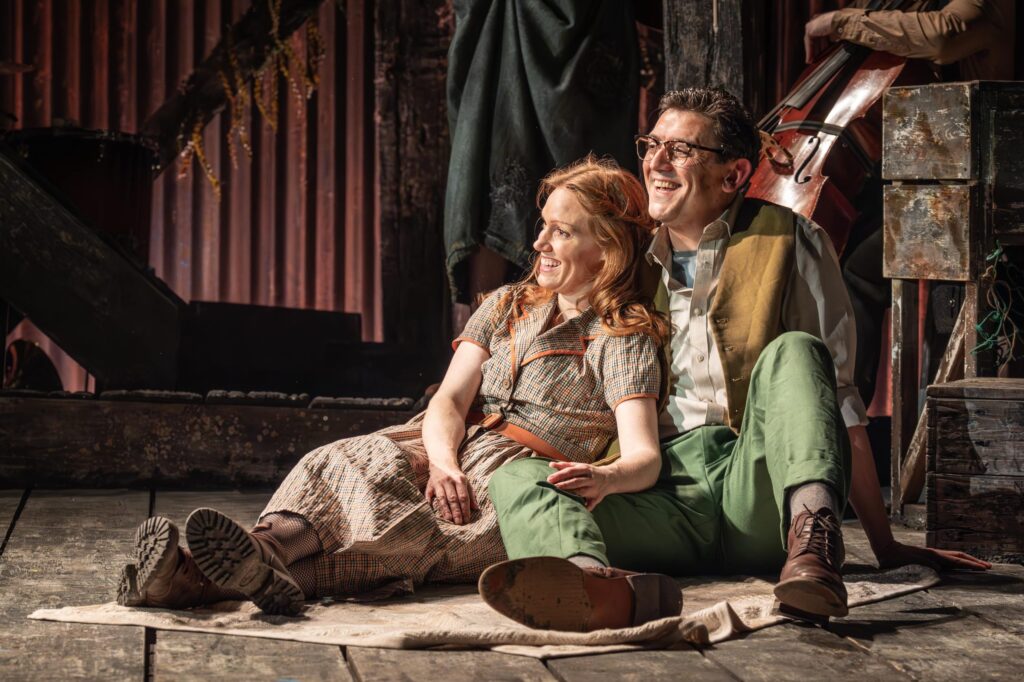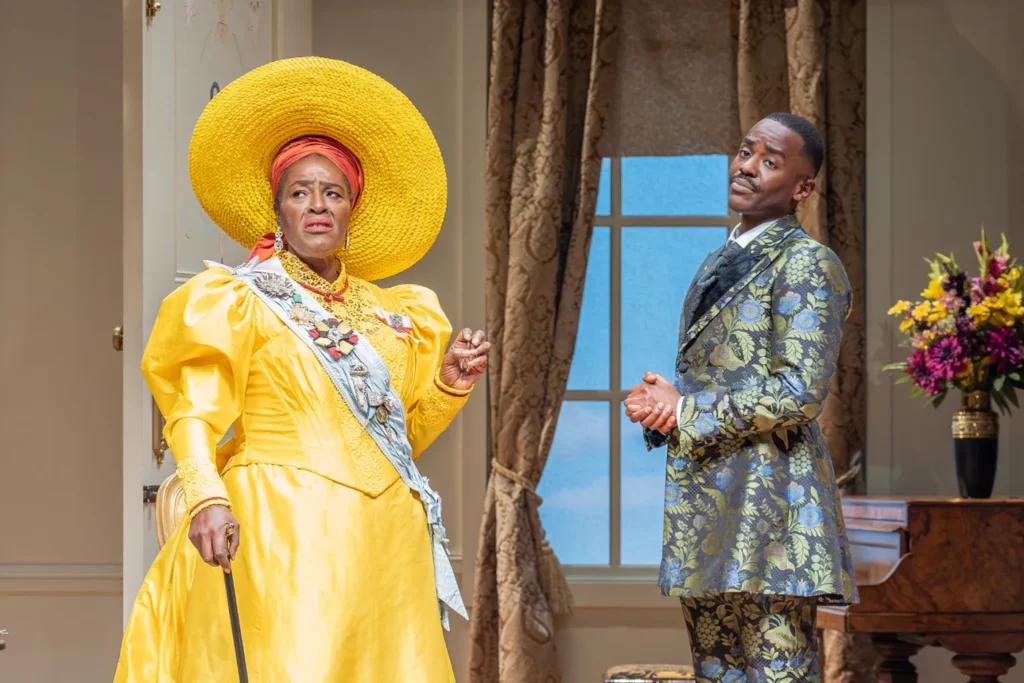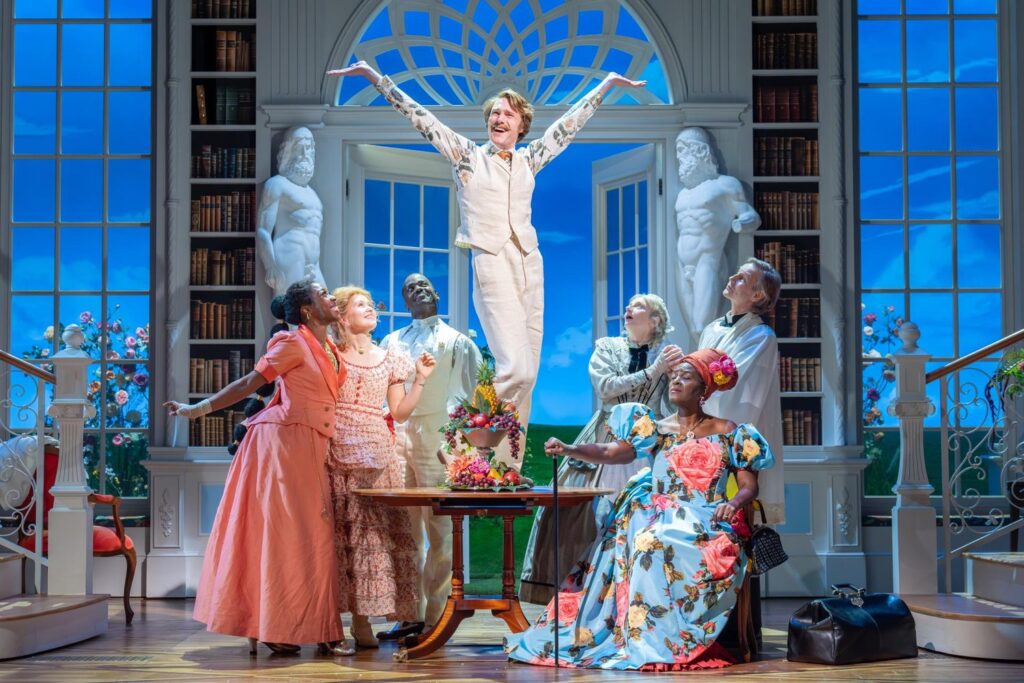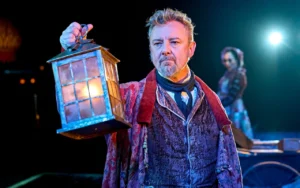Anne-Marie Duff saves ‘dated’ play
Young Vic
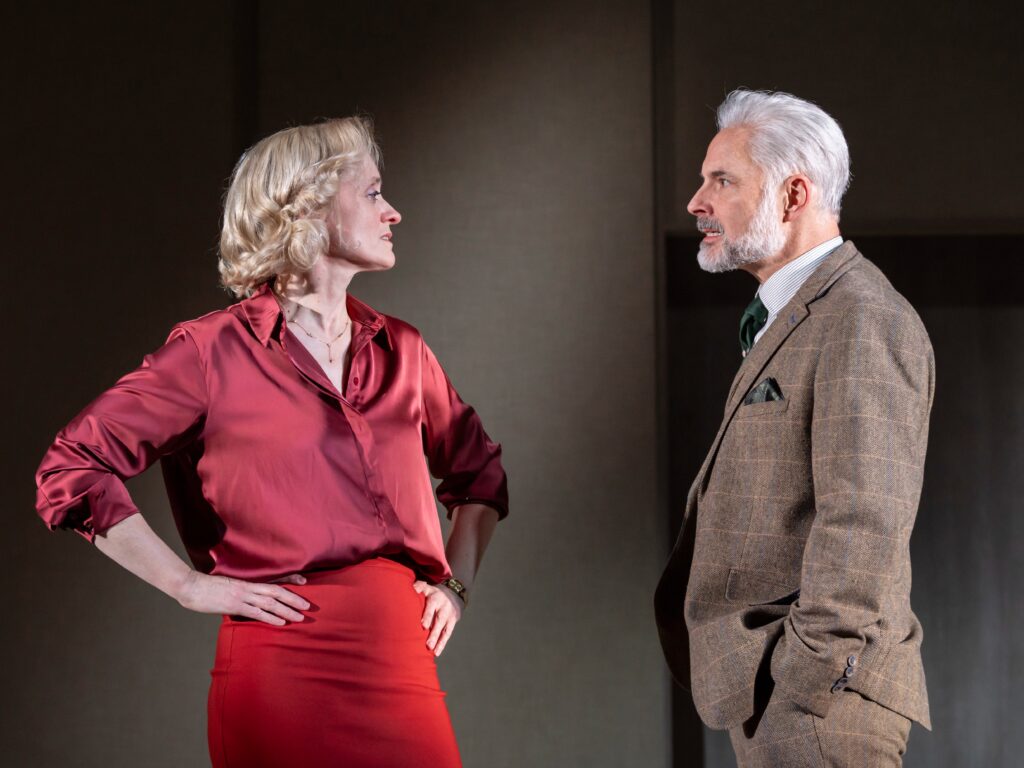
Lillian Hellman’s classic play from 1939 is rarely performed nowadays because, if some of the critics are to be believed, that’s because its hectoring style, unsympathetic hero, and even its subject matter are considered dated. Some critics even wondered why it was being revived. Others were bowled over by the power of the play.
The story concerns a family that has made a fortune from cotton. The men of the family have all the money and are looking to make more. Their sister Regina, like all women at that time (1900), has no inheritance but is determined to have her share. Her machinations tear apart the greedy family.
The acting was praised, particularly that of Anne-Marie Duff, but director Lyndsey Turner’s updating the period from the late 19th century to the 1940s, and Lizzie Clachan’s beige set caused some heads to be scratched.
My own view is that it was a gripping drama and the production’s 1940s design made perfect sense by being in the past but not seeming to be from a bygone age. My 4-star review is here
[Links to the full reviews are given but some websites may be blocked unless you have a subscription]
The Standard’s Nick Curtis (4★) was bowled over: ‘A fine ensemble is anchored by a standout performance from Duff. She mines pathos and empathy from the character of Regina Giddens’. He declared, ‘I basically loved it’ and joked that he ‘also admired the audacity of the timing. Family tensions, rampant capitalism, excessive drinking, someone falling over. Yes, this is definitely a Christmas show.’
Sarah Crompton at WhatsOnStage (4★) said, ‘Little Foxes may be old-fashioned, but it still packs a desolate and depressing punch.’ She pointed out, ‘it has at its heart an absolute stunner of a role for an actor – Regina Hubbard, disempowered wife of the weak and sick Horace, who is manipulating her way to a share of the spoils of her brothers’ business machinations. It’s a role …that Anne-Marie Duff seizes here with charismatic power.’
Dave Fargnoli in The Stage (4★) found ‘Hellman’s writing has a masterly restraint. Her characters hide threats and double meanings behind a veneer of crisp manners and affected politeness, which they break only in the greatest extremity, consummately constructed masks slipping to reveal the violence and viciousness boiling beneath. Director Lyndsey Turner controls the tone of the piece skilfully, gradually and inexorably building tension with an unhurried but never slack pace’. Included in much that he liked was ‘The stylish set, designed by Lizzie Clachan’.
JonThan Marshall for LondonTheatre1 (4★) concluded, ‘As bleak as it all might sound, there is a satisfyingly soapy melodrama to the play we can’t help but buy into. Due to its occasionally archaic writing, it’s clear that a high-calibre cast is needed for the piece to stand up in 2024. This incarnation of The Little Foxes pleasingly does just that.’
Alice Saville in The Independent (3★) said, ‘Duff is a fascinatingly nasty creation here, exuding a brittle glamour in her blood-red gown’. ‘Turner’s staging makes the calculated decision not to romanticise this family, showing them as the grasping parasites they are.’ ‘Turner heightens the story’s early moments of violence, which dims its power to shock later on.’
Time Out’s Andrzej Lukowski (3★) found ‘In Lyndsey Turner’s elegant revival, Anne-Marie Duff …is icy-cold and laser focused’. ‘It’s a grim story, lacking in catharsis. But it’s impressively done.’ However, he had a complaint: ‘The strangest thing about Turner’s revival is the aggressively beige ’60s boardroom aesthetic to Lizzie Clachlan’s set and costumes. The play is very, very definitely set in the Deep South of 1900 and it feels somewhat jarring to, on the one hand, remove this from the production visually, but on the other hand replace it with something relatively non-specific.’
The i’s Fiona Mountford (3★) had many reservations: ‘For all the excellence of the performances, Lyndsey Turner’s production stubbornly refuses to coalesce into a compelling whole…It doesn’t help that the action unfolds on Lizzie Clachan’s long and unlovely set of unadorned beige walls, which provides no anchoring sense of time, place or family history. The greater problem, however, lies with the script’s structuring: too many key events happen offstage and are reported to us second hand, stranding us at one crucial remove from full involvement.’
Natalie Evans for The ArtsDispatch (3★) said, ‘This is, for all intents and purposes, a fantastic production of impeccable quality.’ However, ‘I simply cannot bring forth an answer to the question of ‘Why this? Why now?’ Hellman wrote this piece 85 years ago when it would no doubt have been groundbreaking. However, in 2024, nothing overly new is said, or even implied here.’
Patrick Marmion in the Mail (3★) said, ‘Despite top-of-the-range acting and portentous sound effects, urging us to feel the tension, Hellman’s writing is simply too schematic to make us care about the outcome.’ Holly O’Mahony at LondonTheatre (3) called it ‘a tricky, hard-nosed play that seems to hold its audience at a distance.’ The Telegraph’s Dominic Cavendish (3) called the production ‘fuzzy, unfocused’.
The Times’ Clive Davis (2★) was ground down: ‘A steely-eyed Anne-Marie Duff drips venom as Regina. Steffan Rhodri is persuasive as the charmless Oscar…Anna Madeley’s character, a sort of proto-Blanche DuBois is, in fact, the most interesting of all of them…In the end, however, she, like the rest of the cast, is ground down by the gears of the clockwork plot.’
Helen Hawkins writing for The ArtsDesk (2★) was also highly critical: ‘Turner’s production doesn’t really present us with a play focusing on American racism or the iniquities of the South. These issues are in the text but not at this staging’s core. Ditto feminism. What we are left with is a patchwork: a plot about family finances and double-crosses yoked to a melodrama – emphasised by the ominous rumbling sounds that accompany the climax. As a tragedy of failed dreams, though, it doesn’t engage.’
Critics’ average rating 3.2★
The Little Foxes can be seen at The Young Vic until 8 February 2025 Buy tickets direct from the theatre youngvic.org
If you’ve seen The Little Foxes at the Young Vic, please leave a review and/or rating below
